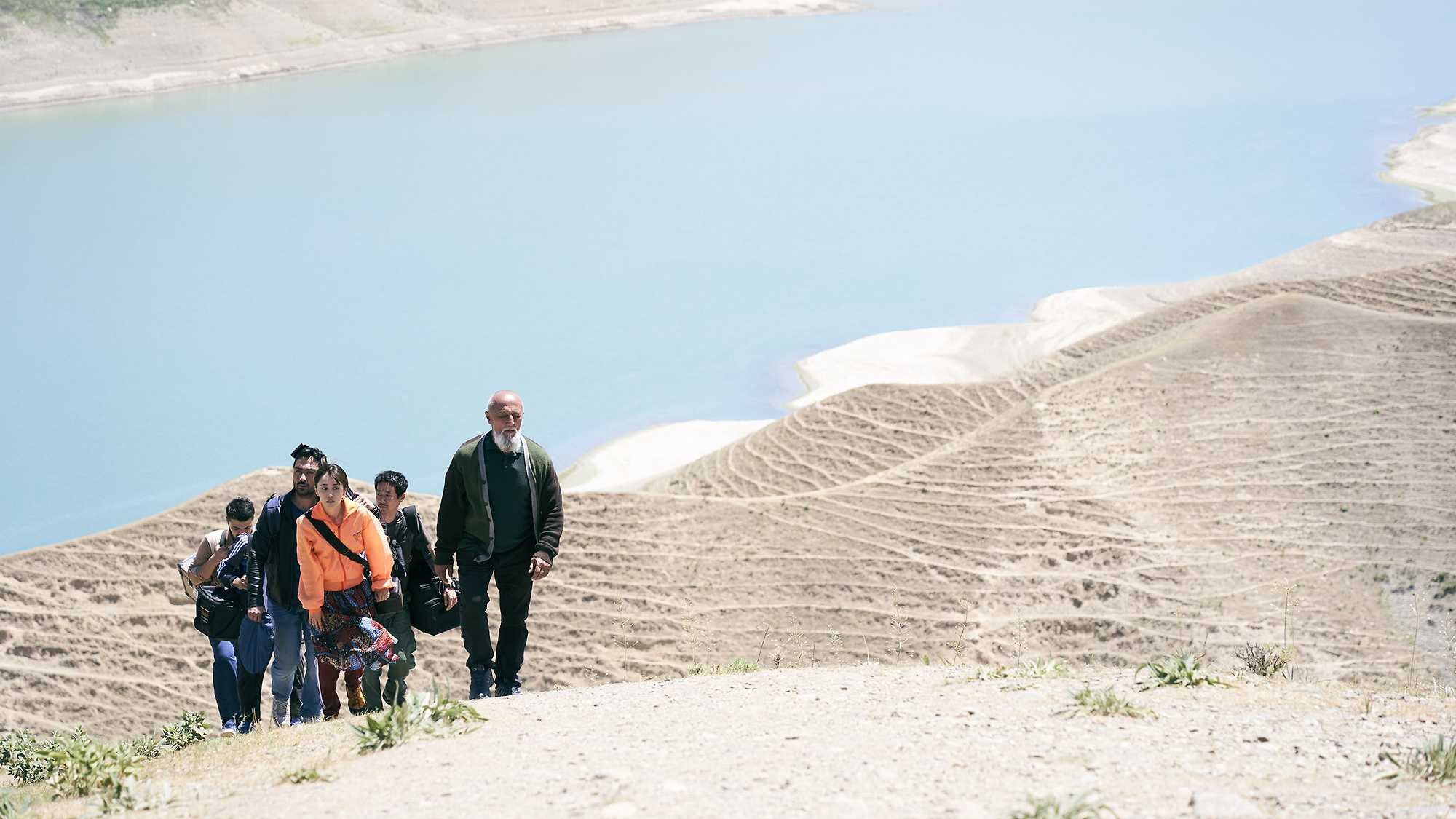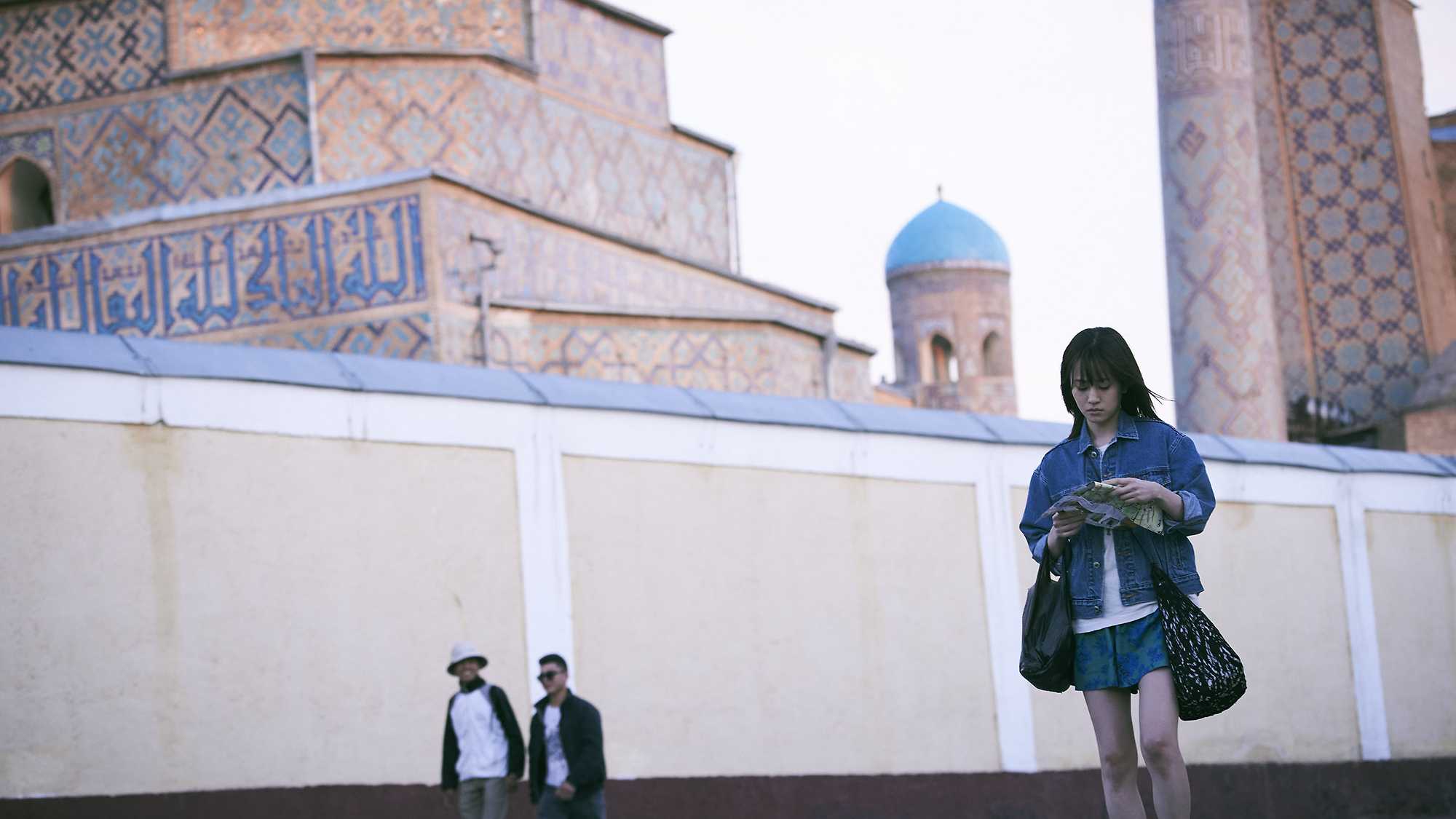Personal, cultural and imagined fears are brought to the scenic surface of Kurosawa Kiyoshi’s superb new film, about a young woman navigating the customs and language of a foreign country while on assignment there as the host of a TV show.



The director’s most engaging and delightful effort in years... To the Ends of the Earth is unexpectedly lucid and crowd-pleasing.
Screened as part of NZIFF 2020
To the Ends of the Earth 2019
Tabi no Owari Sekai no Hajimari
Kurosawa Kiyoshi, the prolific auteur behind such modern Japanese masterpieces as Cure and Tokyo Sonata, takes his enduring fascination with psychological dread into a new realm with this enormously satisfying drama shot on location in Uzbekistan.
Exploring the idea of culture clash as a state of mind, Kurosawa’s latest gets inside the head of Yoko (Maeda Atsuko), a TV reporter touring the central Asian country with a crew from Tokyo. As they move from region to region, shooting shallow lifestyle and sightseeing segments for a travel show, cracks in Yoko’s forced on-camera delivery, and in the frustrated crew’s morale, begin to appear. Yoko’s alienation, compounded by the language barrier (Uzbek dialogue is intentionally not subtitled for effect) and the oppressive stares of locals, is expertly crafted in scenes that pinpoint the unease of existing in a totally unfamiliar place, but with an added complexity that Yoko’s anxiety might be projected, and not necessarily the result of being an unwanted woman and foreigner in a strange land. Building to a series of bold emotional flourishes in its third act, To the Ends of the Earth earns both its tension and humour in surprising yet profoundly relatable ways. — Tim Wong
About the Filmmaker
Kurosawa Kiyoshi is a Japanese director. He first came to international prominence with the revisionist serial killer film Cure (1997), and was judged best director in the Un Certain Regard section at Cannes for Journey to the Shore (2015). Selected filmography: Foreboding (2017), Before We Vanish (2016), Daguerrotype (2016), Creepy (2016), Tokyo Sonata (2008).